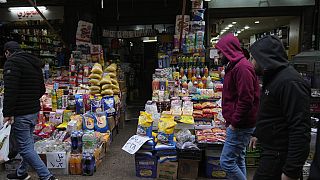Kenya
The Kenyan government has said it will license the Uganda National Oil Company (Unoc), a move expected to bring to an end months of a major feud. On Wednesday, Energy Cabinet Secretary Davis Chirchir said that work was in progress to issue a permit that will allow Unoc to import fuel directly through Kenya Pipeline Company (KPC).
The assurances to license Unoc comes less than a week after petitioners who had filed a case to block the Energy and Petroleum Regulatory Authority (Epra) from issuing the permit withdrew the case.
“We will see how to work together because usage of our pipeline is an opportunity for us,” said Mr Chirchir.
“They will employ Kenya Pipeline Company’s infrastructure so there will be no loss of opportunity, the transporter will remain to be KPC. We are working closely with Uganda to resolve the challenge.” Chirchir added.
The fued had spilled over to court when Uganda went to the regional court in December last year to fight for the licence that would allow the use of KPC's infrastructure.
Unoc had targeted to start the direct importation from January but was forced to indefinitely delay the roll-out after it failed to get a licence from Epra. The Kenyan energy regulator explained it declined only because Unoc failed to comply with the law.
The case by Royani Energy Limited, Acacia Ridge Construction, and two individuals filed at the Machakos High Court filed was withdrawn on March 22.
Uganda kicked off plans for the direct imports deal through Unoc months after Kenya announced an agreement with the Gulf majors - Saudi Aramco, Abu Dhabi National Oil Corporation, and Emirates National Oil Company - to import fuel on a 180-day credit period to ease dollar demand and prop up the local currency, shilling.










01:03
Russia becomes first country to recognise Afghanistan's Taliban government
01:00
Pix of the Day: July 3, 2025
00:28
Nairobi hawker shot at close range by police declared brain dead
01:45
From Uganda to NYC: Zohran Mamdani's rise in American politics
Go to video
Kenya's Interior minister accuses protesters of coup attempt after deadly demos
00:48
Death toll in Kenyan anti-government protests rises to 16, says rights group